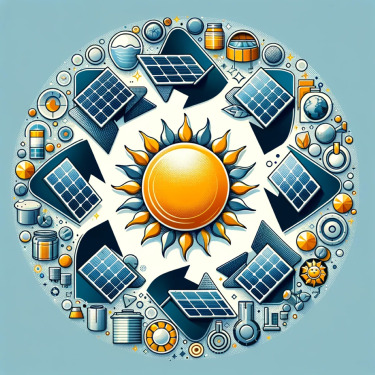The photovoltaic (PV) industry is on the brink of a significant expansion, aiming to meet the increasing demand for clean energy with projections pointing towards a multi-terawatt capacity by the middle of this century. This growth, while essential for the global energy transition, brings to the forefront the challenges of material demand management and the importance of recycling.FAU Solar member Marius Peters highlights the indispensable role of circular recycling in ensuring the PV industry’s sustainable growth amidst finite resource availability and escalating material demands. Circular recycling emerges as a vital strategy to address the limitations posed by the finite availability of key resources like silver and the constrained production capacities for polymers. By advocating for the recycling of materials such as silicon, aluminum, and copper, the study suggests that the PV industry can reduce its dependency on scarce resources and mitigate the environmental impact of its expansion. This approach not only aids in managing the industry’s material demands but also contributes to the broader objectives of a circular economy, promoting sustainability and economic viability.
You can learn more from Marius’s recent paper in Joule and also in the Spektrum magazine.

The photovoltaic (PV) industry is on the brink of a significant expansion, aiming to meet the increasing demand for clean energy with projections pointing towards a multi-terawatt capacity by the middle of this century. This growth, while essential for the global energy transition, brings to the forefront the challenges of material demand management and the importance of recycling.FAU Solar member Marius Peters highlights the indispensable role of circular recycling in ensuring the PV industry’s sustainable growth amidst finite resource availability and escalating material demands. Circular recycling emerges as a vital strategy to address the limitations posed by the finite availability of key resources like silver and the constrained production capacities for polymers. By advocating for the recycling of materials such as silicon, aluminum, and copper, the study suggests that the PV industry can reduce its dependency on scarce resources and mitigate the environmental impact of its expansion. This approach not only aids in managing the industry’s material demands but also contributes to the broader objectives of a circular economy, promoting sustainability and economic viability.
You can learn more from Marius’s recent paper in Joule and also in the Spektrum magazine.